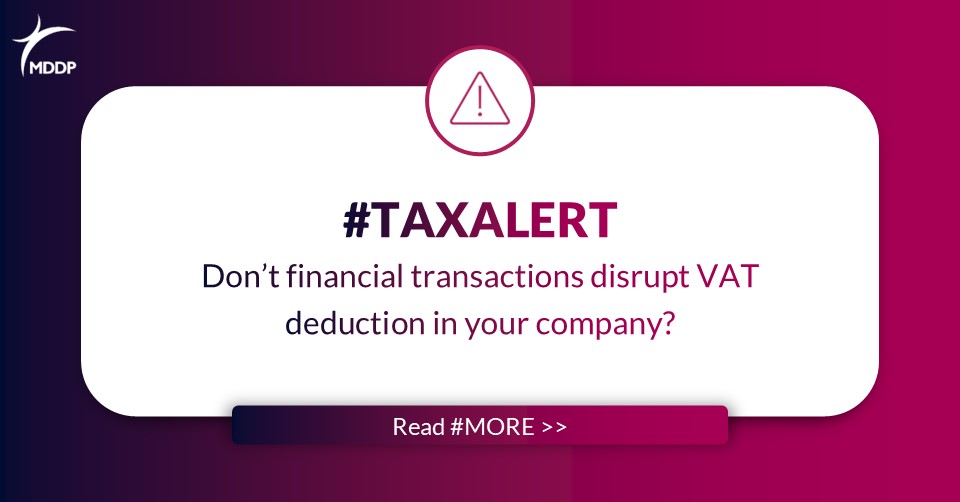Don't financial transactions disrupt VAT deduction in your company?
The correctness of calculating the so-called VAT coefficient is a headache for many accountants. Especially entities that do not perform financial transactions on a daily basis may not even realize that transactions such as intra-group loans, guarantees, insurance or cash pooling, even if “only” re-invoiced, may potentially limit a taxpayer’s right to deduct VAT. This also applies to derivative financial instruments or electricity price hedging contracts.
Basic rules for VAT deduction
- The taxpayer is obliged to separately determine the amount of input VAT related to activities that give the right to deduct and those that do not.
- If it is not possible to separate the tax amounts, the taxpayer shall apply a proportion calculated as the share of turnover from activities giving the right to deduct in the full amount of turnover.
- The proportion is determined on the basis of the previous year’s turnover and rounded up to the nearest whole number.
- Turnover from ancillary financial transactions or certain other VAT-exempt services shall, among others, not be included.
- In certain cases, taxpayers may use an estimated proportion.
- If the proportion exceeds 98% and the amount of non-deductible tax is less than PLN 10,000, the proportion may be considered 100%.
Why is this important?
Practice shows that incorrect calculation of the VAT coefficient may lead to serious tax consequences. The authorities may find that your VAT coefficient is less than 99%-100% and that may result in a limitation of the right to deduct tax, the need to adjust VAT settlements and the payment of tax arrears with interest. While defending your case, you will likely be forced to go through lengthy court proceedings. You may also be required to correct some of the VAT amount you deducted in previous years (e.g., by purchasing certain fixed assets).
Verify your VAT sales coefficient by answering the following questions:
- Does your company participate in financial transactions and generate revenue from them? For example, does your company provide loans or guarantees, or is it a party to derivative financial contracts?
- Have there been any re-invoicing of financial services to group entities?
- Does your company have gratuitous financial transactions?
- Has your company participated in hedging its own or other entities’ financial risks (e.g., exchange rate, currency, price volatility, etc.)?
- Have there been barter-based transactions within the group?
- Has your company made intra-group asset transfers?
Don’t be surprised by a tax audit!
Tax authorities are capable of carefully analyzing the correctness of coefficient calculations as far back as five years. Don’t wait for a clarification call – verify your settlements now. MDDP offers comprehensive support in analyzing and correcting the correctness of VAT deduction.
For more details, please contact us:
| Bartłomiej Kołodziej | bartlomiej.kolodziej@mddp.pl | (+48) 601 443 474 |
or your adviser from MDDP.
This Tax Alert does not provide legal or tax advice. MDDP Michalik Dłuska Dziedzic & Partners spółka doradztwa podatkowego spółka akcyjna is not responsible for the use of the information provided in the Alert without the prior consultation with legal or tax advisers.

